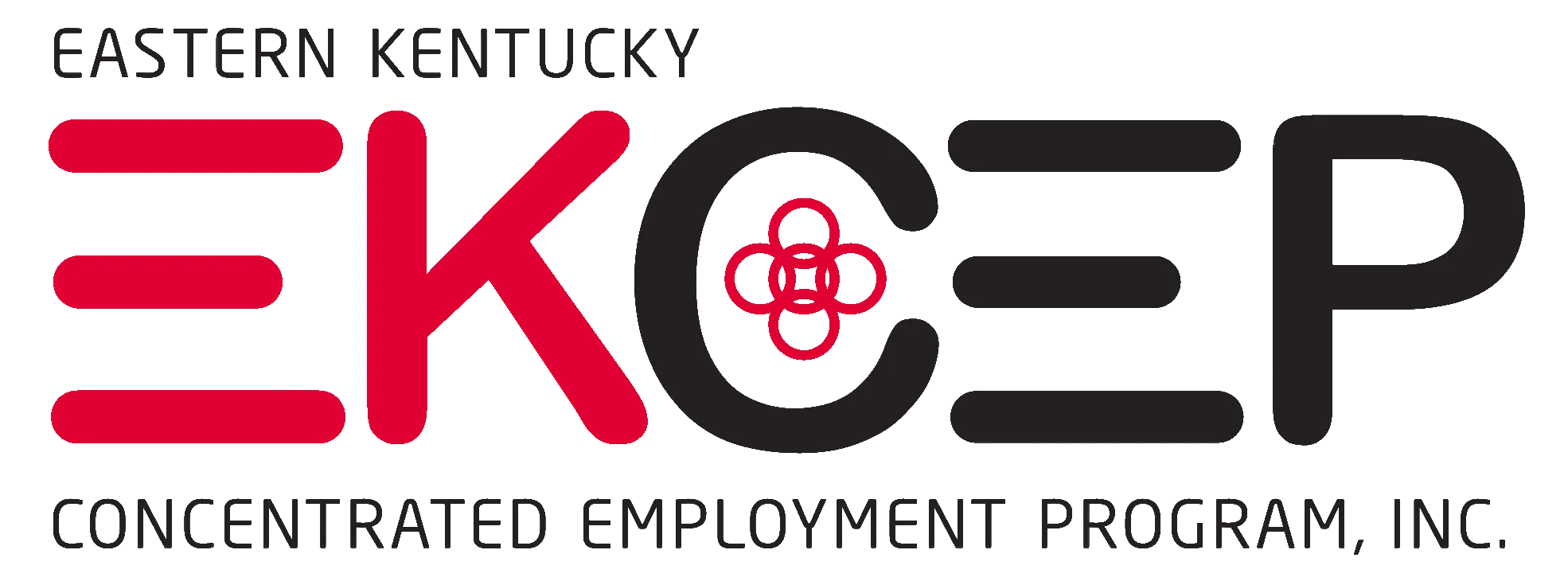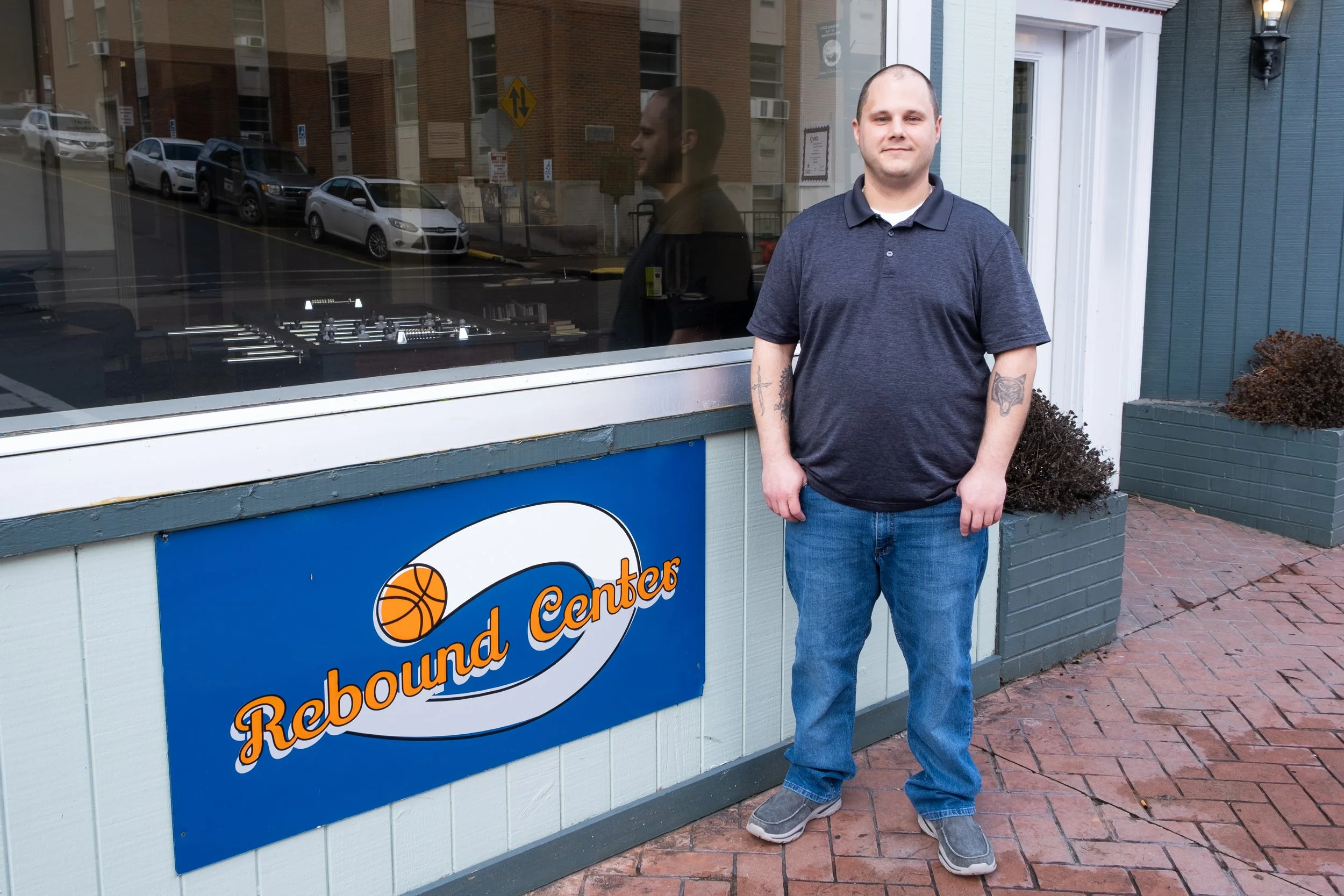Wed, 16 Feb 2022 17:33:02 +0000 • twinkler@ekcep.org
In three years Jeremy Yeary achieved sobriety, got married, earned two college degrees, and received a promotion at work.
To say he’s been active could be an understatement, but he’s far from finished.
“I’m still staying really busy,” Yeary says during a break from his work as lead support specialist at the Rebound Center in Hazard, a Kentucky River Community Care (KRCC) facility for individuals in recovery or seeking recovery from substance use issues.
Jeremy Yeary
That three-year mark is an important one for Yeary, a Tennessee native who’s now making his home in Perry County, Kentucky. Prior to 2020, he’d spent 20 years in active addiction before being placed on probation as the result of a criminal charge. He requested long-term treatment as part of his probation, and was referred to Hickory Hill Recovery Center in Knott County, where he’d spend a year recovering before moving to a sober living facility in Hazard.
“Long-term treatment was great. It was something that I needed,” Yeary said in early 2020 when first sharing his story publicly. “I had lost all hope in everything, I lost hope in myself. I had no will to live.”
Following treatment, Yeary set his sights on other goals, namely a job and enrolling in college to begin working toward a degree. Soon after, the Kentucky Access to Recovery program referred Yeary to Tesa Turner, then a success coach with a program called Strategic Initiative for Transformational Employment, or SITE for short. An initiative of Eastern Kentucky Concentrated Employment Program (EKCEP), Inc., SITE works to bridge the gulf between recovery and productive participation in the workforce by providing individuals with valuable career services while actively cultivating second-chance job opportunities.
For Yeary, he was happy to meet with Turner, who could assist with the process of having his past record expunged. She also assisted with his obtaining a job at KRCC and helped cover some costs associated with Yeary’s enrollment at HCTC. Through SITE, Turner was also able to assist in securing an apartment when Yeary was ready to move out of transitional housing.
Fast forward to February 2022, and Yeary continues to make steady progress in his achieving his goals. His schedule keeps him focused on working and moving forward. In addition to his job, he’s enrolled in a bachelor of social work program at the University of Kentucky, where he’s currently in the second semester of his junior year.
All of this work, he says, serves to achieve his ultimate goal of helping others in recovery. He’s already doing that, but he knows there’s more he can do. When he first entered recovery at Hickory Hill, he was shown that same kind of support from people with similar experiences, and that made a lot of difference in his own journey. He wants to pay that forward.
“That’s kind of a little bit of what I want reflected on the other people when given this opportunity,” Yeary says. “I want to be just a little bit of a beacon of hope that there is a chance, there is a possibility to recover from alcohol and addiction. If I can show them a little bit of what I was able to do, the things I overcame, maybe it can reflect on their life and things are similar enough that they’ll be able to overcome as well.”
And while Yeary is working to help others, he’s also spent time healing fractures in his own life caused by addiction. Namely those with his own family.
“Me and my dad are actually closer than we’ve ever been, and it’s been the greatest thing that’s ever happened,” he says. “My aunt, she was always like my second mom, we’re really close. We do video chats all the time. I’ve got a lot of good relationships back.”
Professionally, Yeary says things are also going well. As the lead peer support specialist at the Rebound Center, he’s actively providing assistance to people who could be just starting out in their recovery or may need wraparound services as they’re first released from rehab or incarceration.
“Peer support is basically kind of like a mentor status, someone relatable that’s been through the same trenches you have, down in the mud, been through addiction and found a way out,” Yeary says. “Maybe they’re going through a really bad trigger phase, and we can offer to take them to a meeting and help them through that, offer a safe environment to come hang out in just to see there is a way to have sober, clean fun.”
Having lived it himself, Yeary says having that sort of support is a “vital part of recovery.” There’s an opportunity for fellowship in the local community, he adds, and anyone who may find themselves in a similar position as he did three years ago—with an opportunity to enter rehabilitation and to find support locally through a program like SITE—should take advantage of it.
“If they’re given an opportunity to work with Tesa or someone like that, I would say absolutely, go for it,” he says. “Every person that you’ve got behind you helps by picking you up and building you up, pushing you in the right direction.”
To learn more about the services available through SITE, visit www.ekcep.org/site.
EKCEP, a nonprofit workforce development agency headquartered in Hazard, Ky., serves the citizens of 23 Appalachian coalfield counties. The agency provides an array of workforce development services and operates the Kentucky Career Center JobSight network of workforce centers, which provide access to more than a dozen state and federal programs that offer employment and training assistance for jobseekers and employers all under one roof. Learn more about us at http://www.ekcep.org, http://www.jobsight.org and http://www.facebook.com/ekcep.

